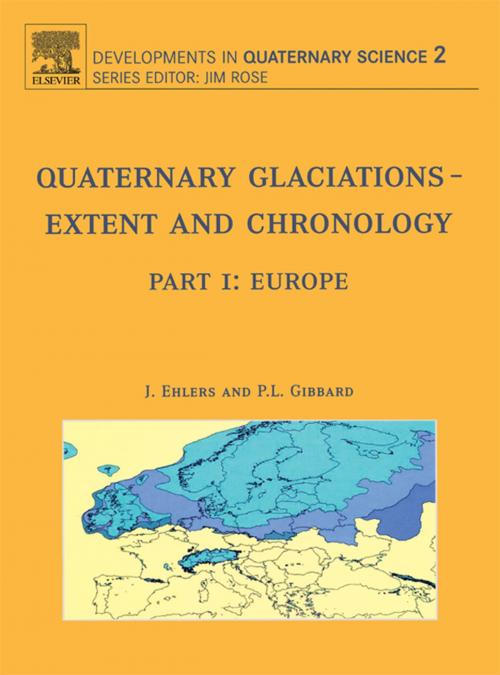Quaternary Glaciations - Extent and Chronology
Part I: Europe
Nonfiction, Science & Nature, Science, Earth Sciences, Geology| Author: | J. Ehlers, P.L. Gibbard | ISBN: | 9780080540146 |
| Publisher: | Elsevier Science | Publication: | June 8, 2004 |
| Imprint: | Elsevier Science | Language: | English |
| Author: | J. Ehlers, P.L. Gibbard |
| ISBN: | 9780080540146 |
| Publisher: | Elsevier Science |
| Publication: | June 8, 2004 |
| Imprint: | Elsevier Science |
| Language: | English |
This book is the first of three volumes in which the recent knowledge of the extent and chronology of Quaternary glaciations has been compiled on a global scale. This information is seen as a fundamental requirement, not only for the glacial workers, but for the wider user-community of general Quaternary workers. In particular the need for accurate ice-front positions is a basic requirement for the rapidly growing field of palaeoclimate modelling. In order to provide the information for the widest-possible range of users in the most accessible form, a series of digital maps was prepared.
The glacial limits were mapped in ArcView, the Geographical Information System (GIS) used by the work group. Digital maps, showing glacial limits, end moraines, ice-dammed lakes, glacier-induced drainage diversions and the locations of key sections through which the glacial limits are defined and dated are included. For major parts of Europe also the extent of the maximum Eemian transgression has been indicated. The digital maps in this volume cover all of Europe and parts of northwestern Siberia. Both overview maps and more detailed maps are provided.
This book is the first of three volumes in which the recent knowledge of the extent and chronology of Quaternary glaciations has been compiled on a global scale. This information is seen as a fundamental requirement, not only for the glacial workers, but for the wider user-community of general Quaternary workers. In particular the need for accurate ice-front positions is a basic requirement for the rapidly growing field of palaeoclimate modelling. In order to provide the information for the widest-possible range of users in the most accessible form, a series of digital maps was prepared.
The glacial limits were mapped in ArcView, the Geographical Information System (GIS) used by the work group. Digital maps, showing glacial limits, end moraines, ice-dammed lakes, glacier-induced drainage diversions and the locations of key sections through which the glacial limits are defined and dated are included. For major parts of Europe also the extent of the maximum Eemian transgression has been indicated. The digital maps in this volume cover all of Europe and parts of northwestern Siberia. Both overview maps and more detailed maps are provided.















